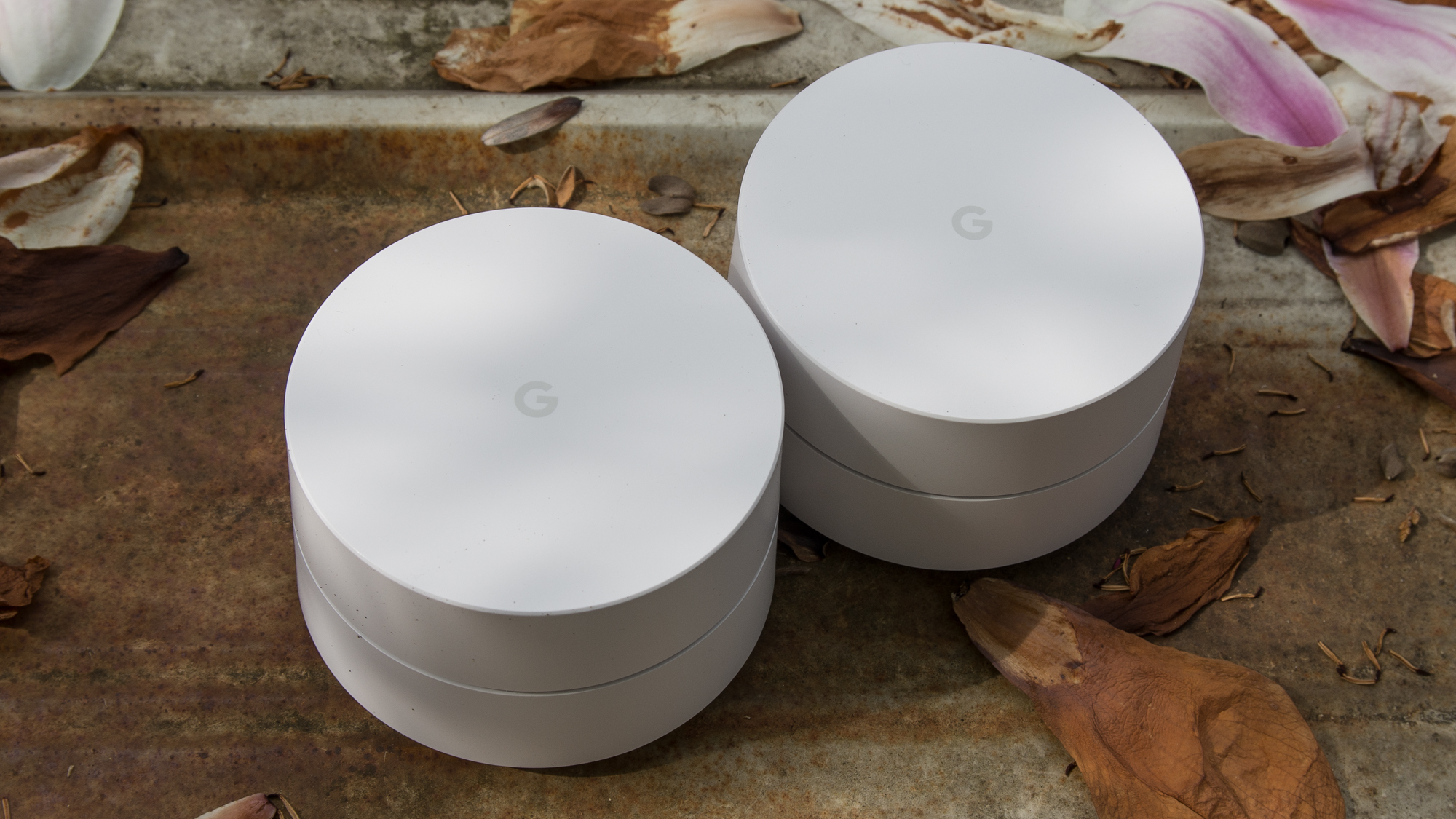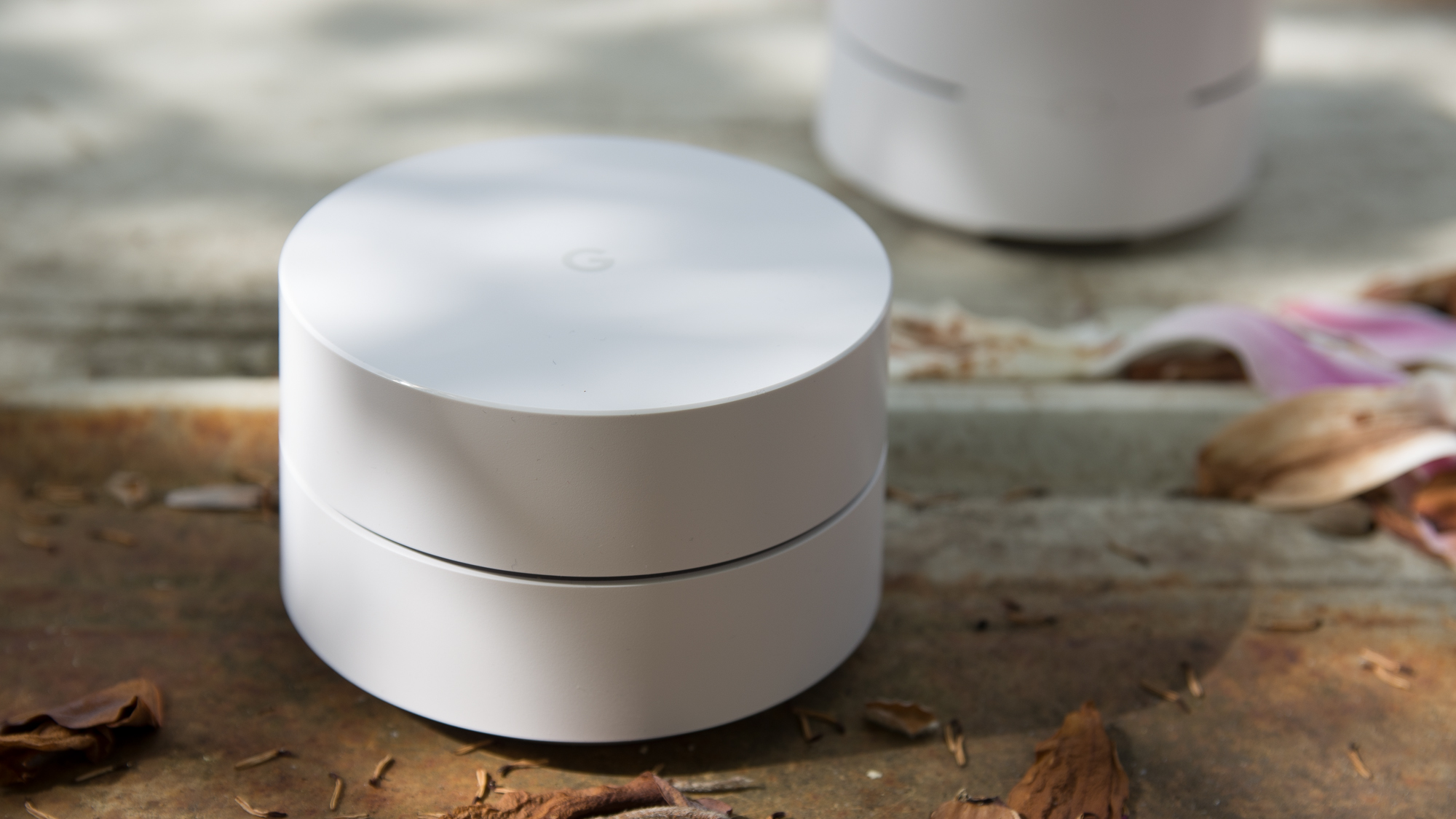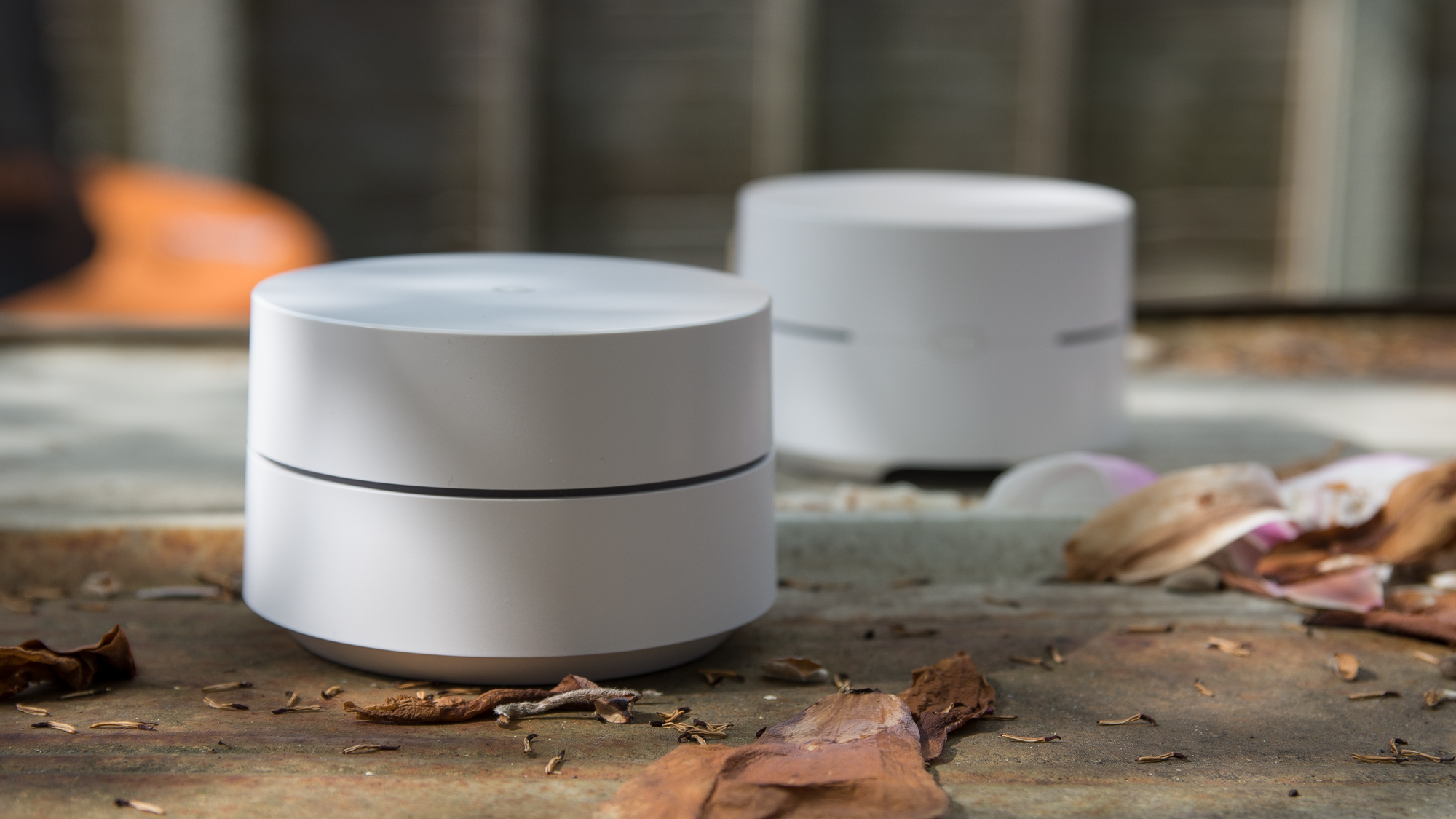Google WiFi review
Google's mesh Wi-Fi network scores a home run for small businesses


Google WiFi is the best mesh Wi-Fi network you can buy. It's not quite as fast as some others, but the excellent management and setup experience elevates it to the top spot.
-
+
Setup is fast and simple; Loads of network monitoring tools included; Coverage is excellent
-
-
Not quite as fast as other mesh Wi-Fi systems; Single nodes lose speed over long ranges

Features
In addition to some smart behind-the-scenes stuff, Google has also thrown in a couple of impressive network monitoring features, too. There's real-time and historical lists of how many devices are connected (including exactly how much bandwidth they're using), as well as records of network usage, speed and more.
In addition to this, users have the ability to prioritise certain devices, meaning that they will always have the fastest and most reliable Wi-Fi connection. This is ideal for any business-critical appliances, like backups or servers, or for making sure that certain teams take precedence.
There's also family controls, allowing parents to block individual devices or groups of devices according to a pre-set schedule (mealtimes, for example), or to pause internet access altogether. Guest network settings are available too, which allow you to provide access to your Wi-Fi network and connected devices like Chromecasts and the like without also giving them access to shared folders and other private information.
Google has even thrown in a set of testing utilities, allowing you to check the internet speed from your ISP, the strength of the mesh connection between your nodes and the Wi-Fi signal to your mobile device.
Performance
The real test of a wireless router, however, is its performance. It can have all the fancy features in the world, but if it doesn't have a good coverage and throughput rate, it might as well be a paperweight. Thankfully, Google Wi-Fi handles both of these things with impressive aplomb.

The whole point of a mesh Wi-Fi network is to minimise the coverage issues that can crop up in large or thick-walled properties, so it's no surprise that Google WiFi performs well here. By placing nodes throughout the house, you can ensure that there's no weak signal areas or 'black spots' throughout the premises.
We found that two nodes were sufficient to provide a large, five-bedroom house with sufficient coverage, but you may want to add more for larger offices. The good thing is that there's no limit to the amount of nodes you can add to the network, and each downstream node only needs to be in range of the one before it in order to maintain a connection.
Be warned, however - individually, the coverage range of an individual node isn't great, and we found speeds dropping to 5MB/sec over longer ranges. We would not recommend purchasing an individual node to use as your primary router.
Google WiFi's performance was similarly capable in terms of raw speed. At close range, it racked up download speeds of 73MB/sec, with 27MB/sec speeds in our long-range tests. While that's highly credible, outperforming the more expensive Linksys Velop, it's not quite as fast as BT's Whole Home Wi-Fi system, which managed to hit 89MB/sec at close range and 36MB/sec at a distance.
Verdict
Google WiFi is one of the best mesh Wi-Fi products around. It's small, stylish and setup couldn't be easier. Not only that, but it's also got a host of network monitoring and management tools to ensure that your connection stays in tip-top shape.
Performance and coverage are excellent too, and while Google WiFi isn't quite the fastest mesh Wi-Fi product on the market, it's more than capable of keeping up with most home or small business use cases.

In fact, despite being primarily marketed as a consumer device, Google WiFi might just be one of the best small-business networking solutions we've seen in a while. The easy setup and maintenance ensures that even non-technical business owners should have no trouble using it, and the ability to add more nodes means that your network can scale with your business, without having to rely on boosters or range extenders.
Google WiFi is an excellent piece of kit, and if you're thinking about upgrading your wireless network, it's definitely going to make you happy.
Verdict
Google WiFi is the best mesh Wi-Fi network you can buy. It's not quite as fast as some others, but the excellent management and setup experience elevates it to the top spot.
Get the ITPro daily newsletter
Sign up today and you will receive a free copy of our Future Focus 2025 report - the leading guidance on AI, cybersecurity and other IT challenges as per 700+ senior executives
Dale Walker is a contributor specializing in cybersecurity, data protection, and IT regulations. He was the former managing editor at ITPro, as well as its sibling sites CloudPro and ChannelPro. He spent a number of years reporting for ITPro from numerous domestic and international events, including IBM, Red Hat, Google, and has been a regular reporter for Microsoft's various yearly showcases, including Ignite.
-
 Cleo attack victim list grows as Hertz confirms customer data stolen – and security experts say it won't be the last
Cleo attack victim list grows as Hertz confirms customer data stolen – and security experts say it won't be the lastNews Hertz has confirmed it suffered a data breach as a result of the Cleo zero-day vulnerability in late 2024, with the car rental giant warning that customer data was stolen.
By Ross Kelly Published
-
 Women show more team spirit when it comes to cybersecurity, yet they're still missing out on opportunities
Women show more team spirit when it comes to cybersecurity, yet they're still missing out on opportunitiesNews While they're more likely to believe that responsibility should be shared, women are less likely to get the necessary training
By Emma Woollacott Published
-
 OpenAI wants developers using its new GPT-4.1 models – but how do they compare to Claude and Gemini on coding tasks?
OpenAI wants developers using its new GPT-4.1 models – but how do they compare to Claude and Gemini on coding tasks?News OpenAI says its GPT-4.1 model family offers sizable improvements for coding, but tests show competitors still outperform it in key areas.
By Ross Kelly Published